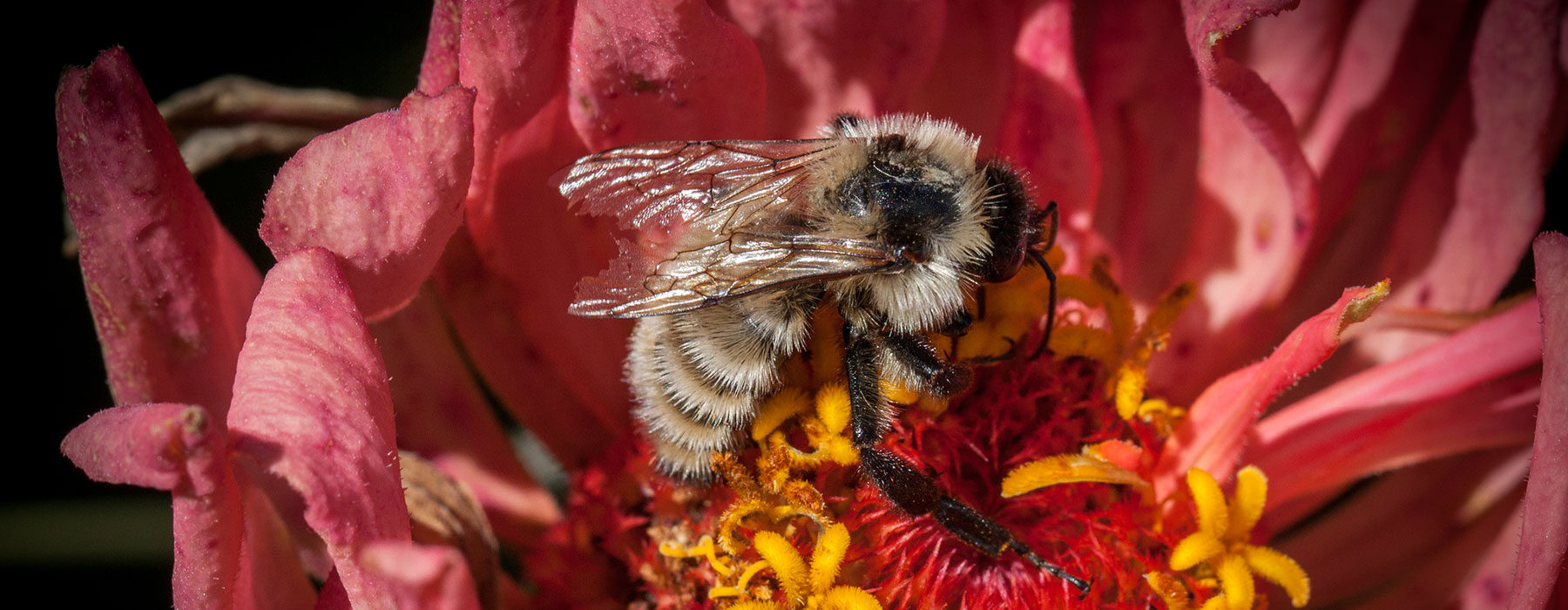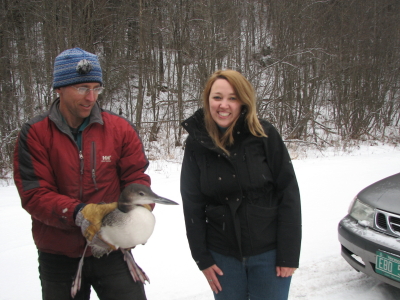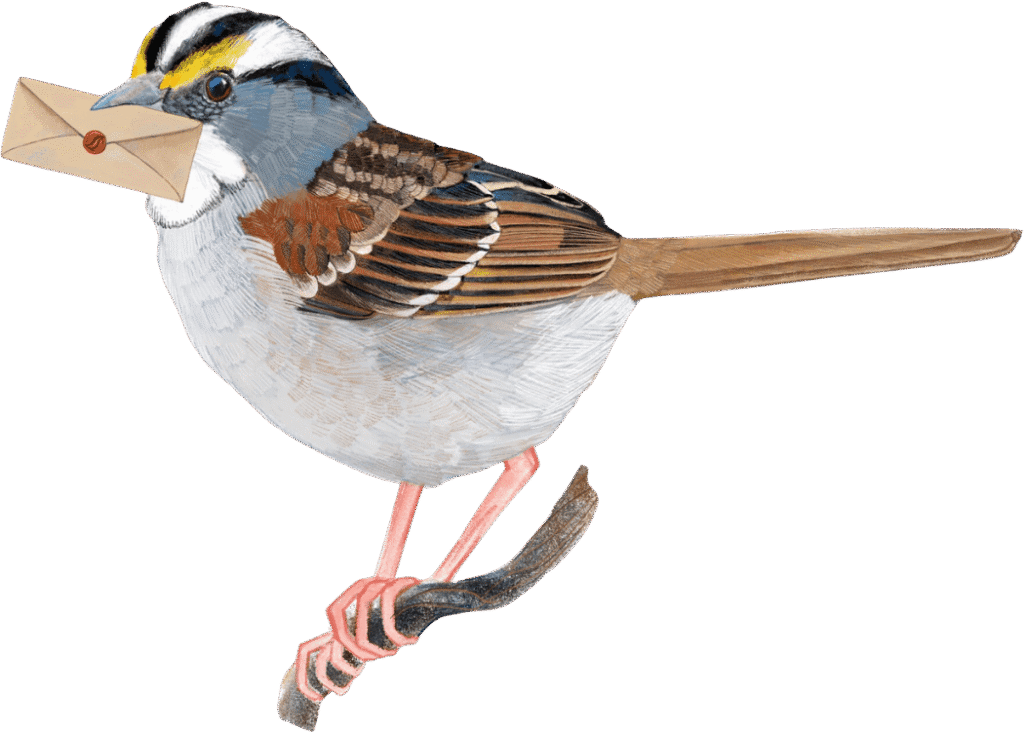Ice-bound Loons
The phone has been ringing more than usual this fall about loons becoming stuck in small open areas of water as the lakes freeze. With the early cold weather, some loons just do not leave in time. Usually these loons are chicks of the year (juveniles) who have to figure out migration on their own. The parents likely left in October or early November.
We are currently monitoring loons on Harvey’s Lake in Barnet, Maidstone Lake, and Sunset Lake in Benson. Despite being a seasonal employee, I’m always on call for things like this although I will definitely enlist the help of VFWD game wardens and local fire departments looking to practice ice-rescues. The key part is to be safe. Sometimes we can help and sometimes these loons just won’t make it.

Loon recovered from an icy pond with the cooperation between local fire department and VCE biologist Eric Hanson.
If a loon becomes ice-bound
The first thing is to monitor the bird. Eric Hanson of the Vermont Center for Ecostudies (VCE) often coordinates these efforts. When ice forms around the loon and the area becomes too small for the loon to take flight, the bird will usually just stay put swimming about keeping the ice open. Loons ideally need several 100 meters or more to take-off. Eventually the hole might only be a few feet across. Loons can go a week or more without much food, so we have time. Eventually the hole will freeze over and the loon will sit on its belly on the ice. If the ice is 3 inches thick, this is when we go after the loon with a big net and box ready for transport to Lake Champlain. We’ll also wear life jackets and dry suits. If the ice is not thick enough, we need to wait a bit longer. We’ll contact the local game warden so they know there is an ice bound loon being monitored.




There are still loons on some of the lakes in Vermont. Please add your sightings to the Vermont eBird map. Check it out at http://ebird.org/ebird/vt/map/comloo?neg=true&env.minX=-80.35793905000003&env.minY=41.38577762495489&env.maxX=-64.53762655000003&env.maxY=46.27929970432253&zh=true&gp=false&ev=Z&mr=12-2&bmo=12&emo=2&yr=cur
I have a loon on Pensioner pond. I thought it was late to still hear him
Most adult loons leave by late October to early November. Our Vermont loons usually spend the winters along the New England coast. Chicks can stick around into November and December. We just hope they have that urge to fly before the ice forms. VLCP biologist, Eric Hanson
On Mascoma Lake, Enfield Nh we have two ice bound loons. The
lake froze over last night, 12/10/16 and we noticed them in separate water opening (small) this morning. Very disturbing!!!!
I’ll contact NH’s Loon Preservation Committee who deals with loon situations over there. With the birds in open water holes, they likely keep the holes open for awhile allowing the ice to thicken elsewhere. If the ice becomes thick enough, a rescue attempt could be considered eventually but for now monitoring is what needs to be done. Thanks. Eric Hanson VLCP Biologist
We just had a loon stranded on our lake this morning in SW Michigan. Of course it was migrating north at this time of the year. Our lake had been thawed but refroze overnight. It was very hard to watch especially when a hawk tried to go after it. We managed to get a pathway open with our kayak & it finally flew to freedom.
We have a loon stranded on Joe’s Pond in West Danville VT – so sad to see. The ice formed last night and the loon is stuck in a small patch of water. Is there anything we can do? I called and left a message with Eric Hanson a little bit ago.
The lake at our cottage is frozen but we have an ice heater/bubbler around our boathouse to keep the water open/protect the boathouse. We just turned it on this morning. This aft we saw a loon crawling his way across our frozen bay to our open patch of water. He finally made it. The water won’t freeze but what should we do about him? He looks like a juvenile. Can he survive the winter there? Can he take off? Should we feed him fish? Thanks
Hi there, In NY and VT, we’ve observed loons take-off from open water less than 30 feet long, so there is a chance it could depart. This is a tricky situation as the loon can hang out there fine for awhile, but feeding will be difficult. Where are you located? One thought would be to keep the bubbler going into this next cold spell and then turn it off. This would allow the ice around the hole to become thick enough (3-4″) for people to safely walk on but then the hole would eventually freeze forcing the loon onto the ice where it could be picked up using blankets, towels, etc., the loon could be put in a box, and then transported to water that won’t freeze for a long time or at all. Ideally a trained person would do this (me, Fish and Wildlife, wildlife rehabber). I’ll email you directly. eric hanson
There is a juvenileloon on Lake Morley in Fairlee,VT next toLake Morey Resort. Can someone rescue it?
Dealing with iced-in loons.
For most ice-bound loons, we monitor and wait until the hole freezes over before going out to chase down the loon. Loons can keep a water hole open with their movement for a while before climbing out onto the ice. Once the loon is forced onto the ice, we need to check that the ice is 3″ thick or more before considering venturing out. Safety is key. In many cases, we can’t get out there safely, but if the ice is thick enough, we might be able to go out. I always hope the loon can keep the hole open for several days to a week so the ice can thicken. They can live in these holes for a week + based on past experience and can go without much food for a week or two.
I’ve observed a loon take off from a 30 foot long opening. We think many have taken off from 100 foot or less openings as they are gone then next day and we cannot find any sign of them around the shorelines or on the ice.
Is there someone who can make a check on the loon every few days? I only work for VCE April-Sept., and have different job this time of year. There is a chance a game warden could help if they’re willing. My time is a bit limited in getting over there to check it out, but will try if I can. Keep me updated.
Eric Hanson
802-586-8065 (home)
ehanson@vtecostudies.org
Hi Eric,
Thank you for the response.
I was at a conference at the Lake Morey Resort in Fairlee, VT and saw the juvenile loon floating alone out on the lake. I live in NH and unfortunately have no way of checking on the loon (the conference was only for one day). I’m hopeful you may have some connections near Fairlee who can check in on the loon.
Thank you.
Yes, we’ll have someone check on it. We have a great volunteer corps statewide including in the Lake Morey area. Some warm weather this week will delay lakes from totally freezing over for at least a little while. eric hanson
Good Evening Eric,
Thank you for letting me know about your loon connections in Fairlee; it surely will make me sleep more peacefully. I truly hope the juvenile/baby loon is still afloat?
I appreciate all that you and the others do for our wildlife/loons,
I witnessed an iced in loon on Big Fish Lake, Cold Spring, Minnesota takeoff on pure ice. Dragged his feet the first 200 yards then gained just enough lift to bank in SE bay with a juvenile eagle in tow, cleared the trees on John’s point, then to open water in Richmond bay.
Hi Eric, I live a quarter mile from #10 Pond (Mirror Lake) in East Calais VT & have observed 2 juvenile loons stuck on the ice. There was still a small amount of open water there up until 12/24 but since then it seems to have completely frozen over. I’ve already emailed VT Fish & Game but haven’t heard back yet. I drive by the lake every day several times a day & the loons are still there. Unfortunately there doesn’t appear to be any open water left on the lake & it also appears that they are moving around less & less. Any help you could provide would be greatly appreciated & I would feel so much better knowing that someone is looking into this. You can reach me by email @ brentjamest@gmail.com! Thank you!
Hi Brent,
One loon got off according to Rowan Jacobsen and several others who live nearby. The 2nd one was depredated by an eagle 3-4 hours before I arrived w/ nets. I wish I could have come a day or two earlier but my winter work has been dealing w/ this wind storm and I could not get away. The ice thickness was also questionable for safety reasons. I still need better ice rescue and safety gear as I’m super cautious; hopefully next year we can respond a bit sooner. We can’t get ’em all and at least one made it off. I share these words from Walt Amses in Calais who was also watching. take care, eric hanson
From Calais Front Porch Forum: In an ultimate act of defiance the remaining Number 10 yearling loon, now a fully fledged adolescent, grown large enough over the summer and fall to no longer be easy prey, waddled up onto the frozen surface of the pond, entering the primitive cycle of life and death, offering sustenance to one of what we’ve taken to calling “our” eagles. I’d checked on him in the morning, surprised he survived the night since abandoning the water the previous evening, becoming exponentially more vulnerable. He may have known something we didn’t. I headed home anticipating the rescue we’d planned a couple of hours later with Eric Hanson, biologist for the state’s Loon Conservation Project who’d coordinated a similar effort a year ago when a loon fled the ice and wandered into North Calais Village.
Learning the loon was taken shortly after I’d seen him was of course disappointing, but the longer I sat with it, the more my thinking came around. In the 40 years I’ve lived here my life has been enhanced every day by my surroundings: The tranquility of nature and the solitude of our back road; the complex and lush ecosystem we are privileged to experience on daily walks; and the few other, year-round people who hold these same things dear. I would never want to live anywhere else. Though our well intentioned effort never came to fruition, there is solace in having shared this animal’s final days, an up close and intimate glimpse of raw nature most humans will never experience. Not always beautiful but at the same time, profound and humbling.
Have a wonderful New Year.